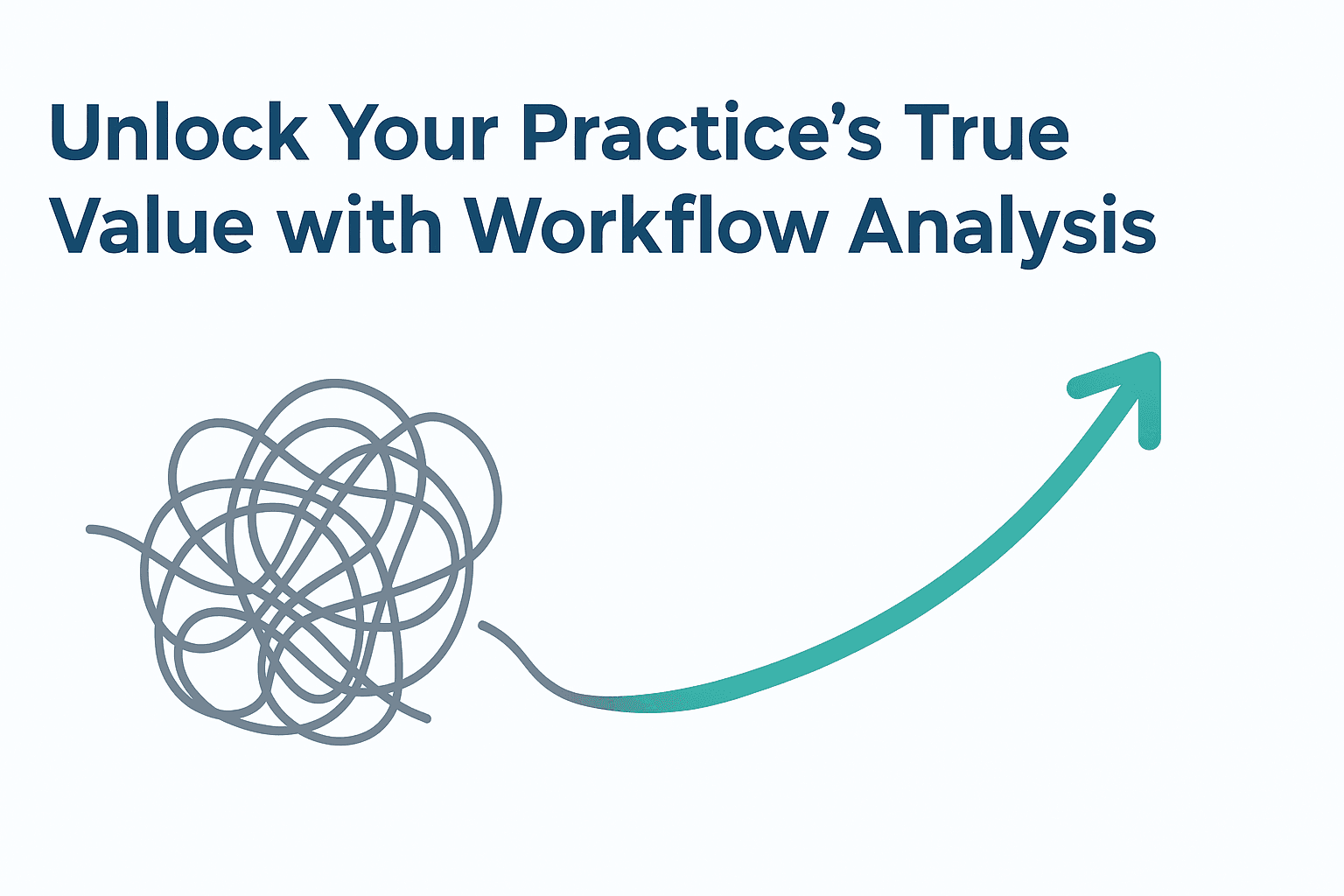The market for memory care in Maine presents a unique opportunity for practice owners considering a sale. Demand is high, driven by demographic trends, but the operational landscape is complex. Understanding how to position your facility amidst regulatory changes and market pressures is key to a successful exit. This guide offers you an overview of the factors you should be considering and how to prepare for a transition, ensuring you navigate this landscape to achieve your personal and financial goals.
Curious about what your practice might be worth in today’s market?
Market Overview
Maine’s market for memory care is a tale of two realities. On one hand, demand is undeniable. The retirement community sector is projected to grow, and with over half (52.5%) of the state’s nursing home residents suffering from dementia, the need for specialized care is clear. This creates a favorable environment for sellers. However, this demand exists alongside significant operational headwinds. Many facilities face challenges with funding shortfalls and low MaineCare reimbursement rates, which have historically strained operators. For a potential seller, this means buyers are interested, but they are also diligent. They will look closely at how well your facility has managed these financial pressures. A strong story of operational efficiency and high-quality care is your greatest asset.
Key Considerations for Maine Sellers
When preparing to sell, buyers will look past the broad market trends and focus on the specifics of your operation. In Maine, there are a few key areas that demand your attention.
Staffing & Compliance
Maine’s regulators are focused on increasing staffing levels, with proposals aiming for ratios as high as one direct care worker for every five residents. Buyers will heavily scrutinize your current staffing model, your compliance history, and your ability to meet these future requirements without compromising profitability. Being ahead of the curve on this front is a significant selling point.
Financial Performance
Your financial story needs to be clear and compelling. Prospective buyers will analyze your historical revenue, occupancy rates, and profitability, paying close attention to your payer mix. Demonstrating stable cash flow despite low MaineCare reimbursement rates shows operational excellence and significantly boosts buyer confidence.
Competitive Positioning
With 54 licensed memory care communities in the state, you need to articulate what makes your facility stand out. Is it a specialized dementia program, exceptional staff tenure and expertise, a prime location, or consistently high resident satisfaction? Defining your unique selling proposition is not just marketing. It is a core part of justifying your practice’s value.
Every practice sale has unique considerations that require personalized guidance.
Market Activity
Despite the operational pressures, market activity for memory care facilities remains strong. The sector has proven its resilience, with buyer appetite from both strategic acquirers and private equity groups looking for quality assets. These buyers are sophisticated. They are drawn to the demographic tailwinds in Maine but conduct rigorous due diligence on financials, operations, and compliance. One critical point of process is that in Maine, facility licenses are not transferable. A new owner must apply for and secure their own license, a process that must be managed carefully to ensure a smooth transition. For sellers, this means that having your documentation and compliance in perfect order is not just good practice. It is a requirement for getting a deal done in today’s market.
The Sale Process
Selling your practice is a structured journey, not a single event. While every transaction is unique, a well-managed process generally follows four key stages. We find that breaking it down this way helps owners understand what to expect.
- Valuation and Preparation. This is the foundational step. It involves a deep analysis of your facility’s financials to determine its market value and assembling all necessary documentation into a confidential package for qualified buyers. This is where you fix correctable issues before they can be used against you in negotiations.
- Confidential Marketing. Your advisor will discreetly approach a curated list of potential buyers who have been vetted for their financial capacity and strategic fit. Your identity and the sale remain confidential to protect your staff, residents, and local reputation.
- Negotiation and Due Diligence. After receiving initial offers, you select a preferred partner. This kicks off the buyer’s formal due diligence, where they verify all financial, operational, and legal information. This is often the most intense phase, where many deals without expert guidance encounter problems.
- Closing and Transition. Once due diligence is complete, final legal documents are drafted and signed. A clear transition plan for staff, residents, and families is executed to ensure continuity of care, protecting the legacy you have built.
Preparing properly for buyer due diligence can prevent unexpected issues.
How Your Practice is Valued
Understanding your memory care center’s value goes beyond a simple look at your profits. Sophisticated buyers value practices based on a metric called Adjusted EBITDA (Earnings Before Interest, Taxes, Depreciation, and Amortization). This figure represents your facility’s true cash flow by adding back owner-specific or one-time expenses to your net income. That Adjusted EBITDA figure is then multiplied by a number (a “multiple”) to determine the enterprise value. The multiple isn’t random; it’s determined by risk and growth potential. For practices with over $1M in EBITDA, multiples can often range from 5.5x to over 7.5x. Here are some of the factors buyers consider when determining your multiple.
| Factor that Increases Value | Factor that Decreases Value |
|---|---|
| High and stable occupancy rates | Heavy reliance on the owner for operations |
| Diverse payor mix with strong private pay | Poorly documented financials |
| Modern, well-maintained facility | History of compliance or staffing issues |
| Strong, tenured management team in place | Declining revenue or occupancy trends |
A comprehensive valuation is the foundation of a successful practice transition strategy.
Post-Sale Considerations
The day you sign the papers is a milestone, but it is not the end of the story. How your deal is structured has major implications for your team, your legacy, and your final take-home proceeds. A well-designed transition plan is critical for ensuring residents continue to receive excellent care and that your staff feels secure. Beyond the transition, the financial structure of the deal matters immensely. Many transactions include components like an earn-out, where you receive additional payments for meeting performance targets post-sale, or rollover equity, where you retain a minority stake in the new, larger company. These structures can significantly increase your total financial return but require careful negotiation. Planning for your post-sale role, your tax implications, and the long-term success of the facility ensures your exit is as rewarding as the years you spent building it.
Your legacy and staff deserve protection during the transition to new ownership.
Frequently Asked Questions
What are the current market trends for selling a memory care center in Maine?
The market for memory care centers in Maine is marked by high demand due to demographic trends, especially the growing retirement community and a high percentage of nursing home residents with dementia (52.5%). Despite strong demand, there are operational challenges such as funding shortfalls and low MaineCare reimbursement rates which affect profitability. Buyers are interested but are diligent in examining operational efficiency and quality of care before purchase.
What regulatory factors should I consider when selling my memory care practice in Maine?
Maine regulators are focusing on staffing levels, with proposals for ratios like one direct care worker for every five residents. Buyers will scrutinize your staffing models, compliance history, and ability to meet future regulatory requirements without hurting profitability. Additionally, memory care facility licenses in Maine are not transferable, so the new owner must secure a new license, making compliance documentation critical for a smooth sale.
How is the value of a memory care center determined in Maine’s market?
Value is primarily determined using Adjusted EBITDA, which is the facility’s cash flow adjusted for owner-specific or one-time expenses. Buyers multiply this figure by a multiple (often between 5.5x to 7.5x for practices with over $1M EBITDA) based on factors like occupancy rates, payor mix, facility condition, management team strength, and risks such as reliance on the owner or compliance issues.
What are the key steps involved in selling a memory care center practice in Maine?
The sale process typically involves four stages:
- Valuation and preparation of financials and documentation
- Confidential marketing to vetted buyers
- Negotiation and due diligence where buyers verify information
- Closing and transition with legal paperwork and a plan to ensure continuity of care and staff security
Each stage requires careful management to ensure a successful transaction.
What post-sale considerations should sellers keep in mind after selling their memory care center?
After sale, sellers should focus on a well-designed transition plan to maintain resident care and support staff. Financial deal structures like earn-outs or rollover equity can significantly enhance total returns but need negotiation. Sellers should also plan for their post-sale roles, tax implications, and long-term success of the facility to protect their legacy and maximize financial outcomes.



